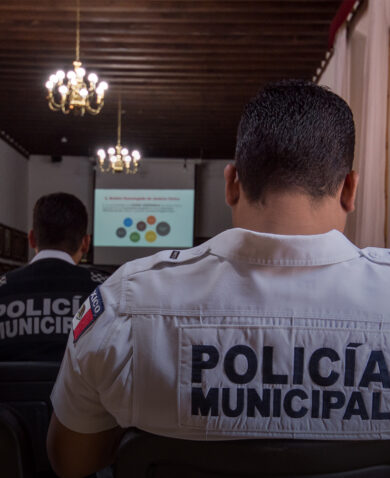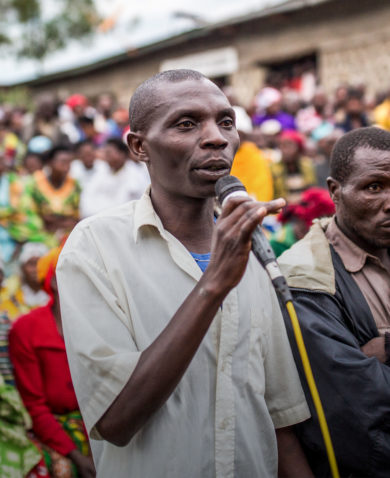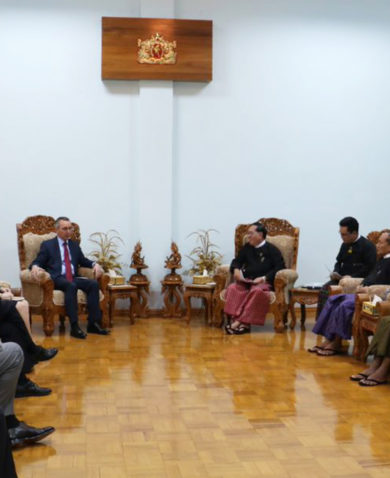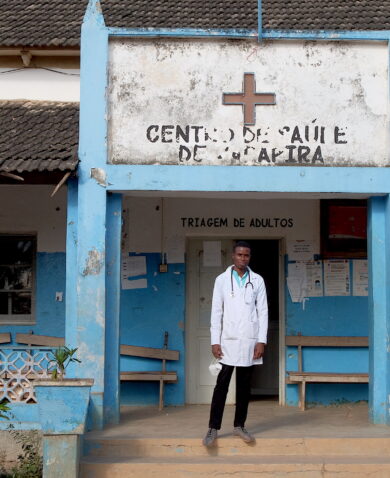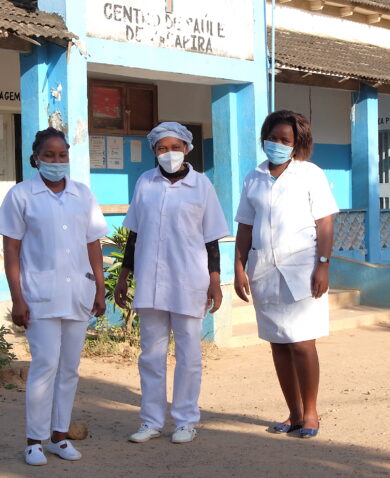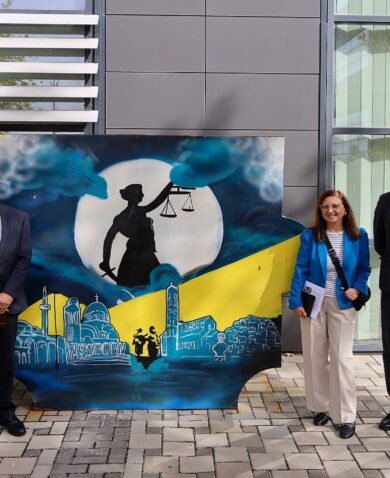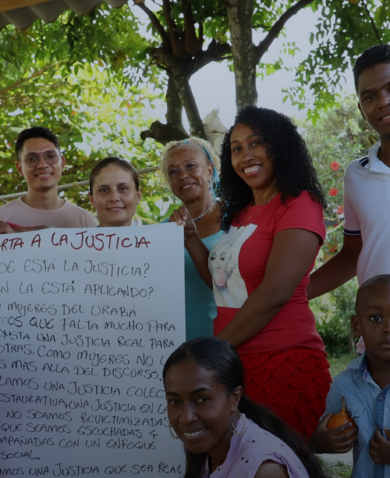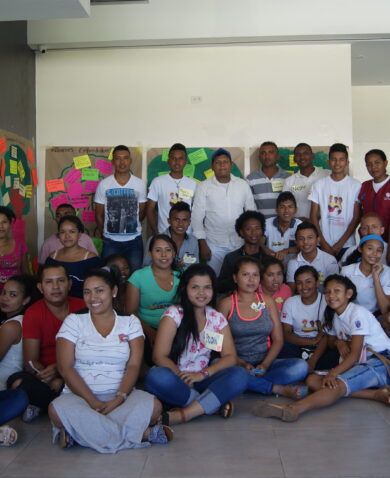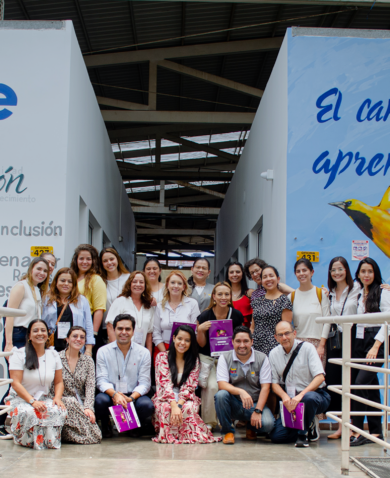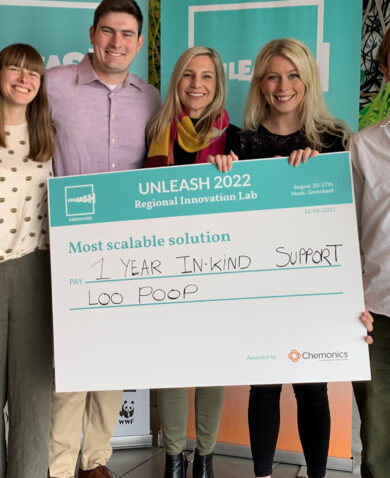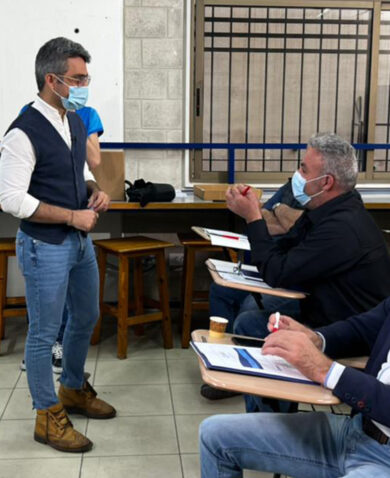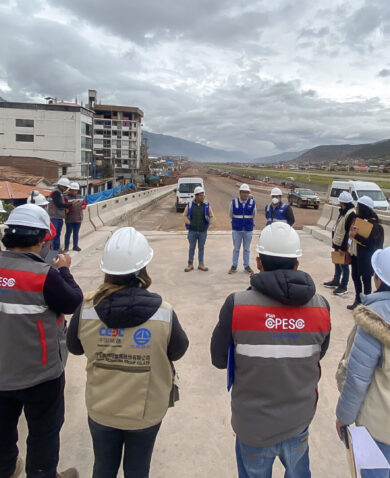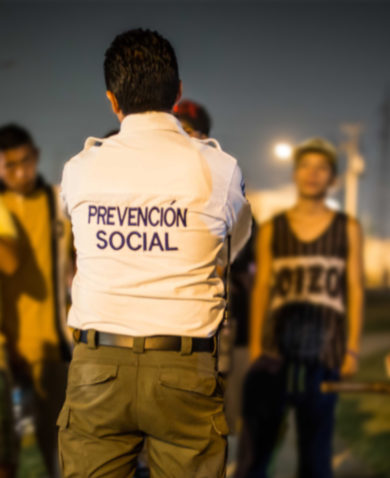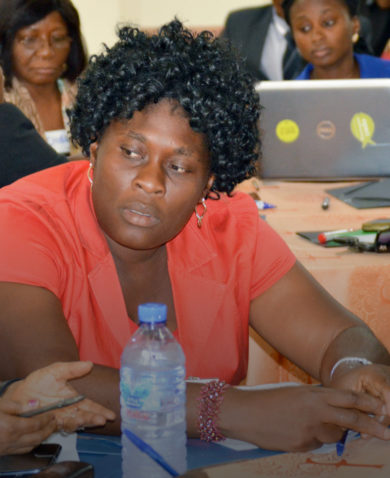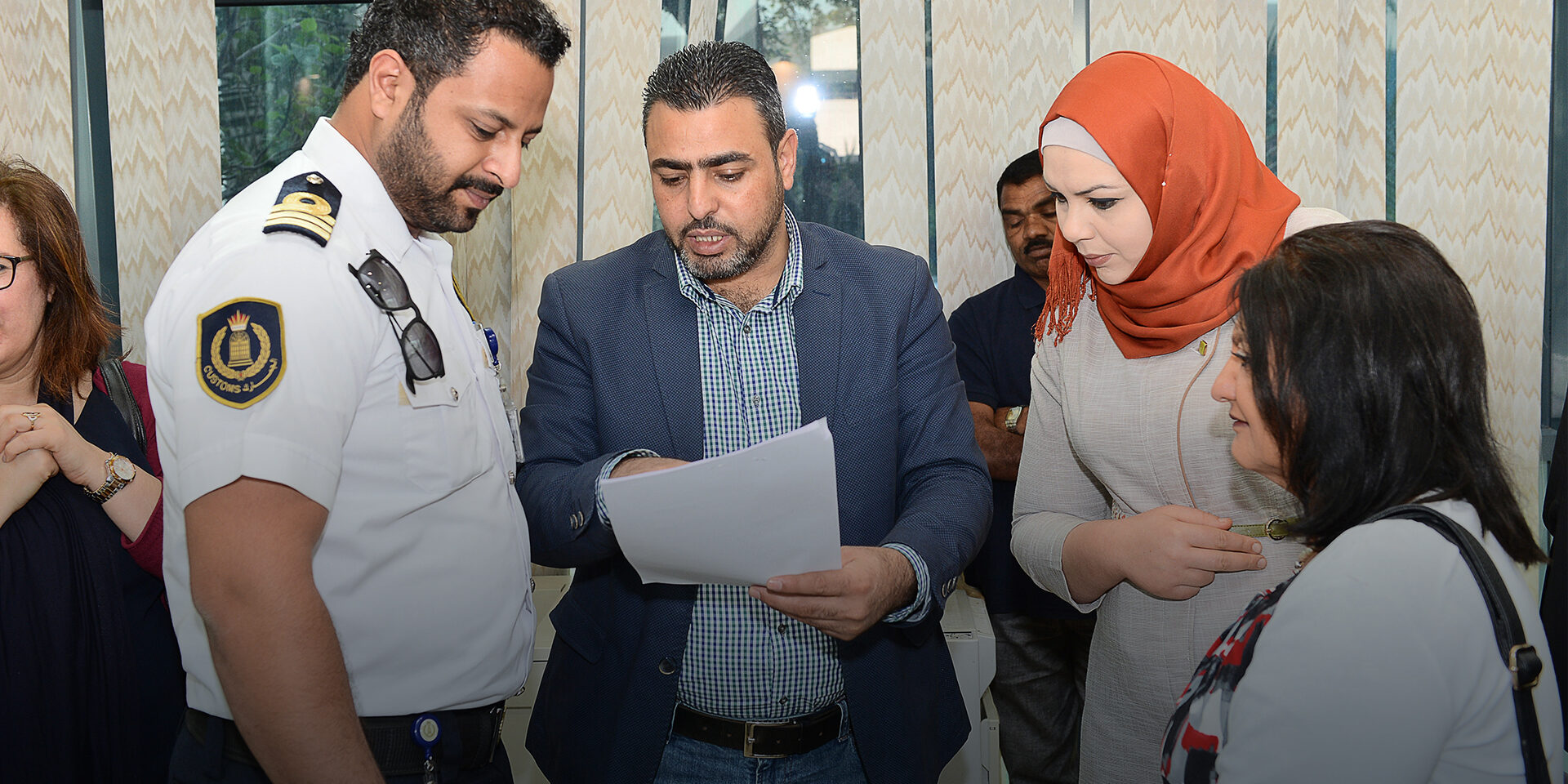
The Work You May Not Know You’re Doing and How To Do It Better
June 30, 2020 | 5 Minute ReadStacia George and Heather Seeley explore why security sector reform is key to every development project, how you may be enacting reform without knowing it, and how to do more to integrate best practices into your project for more effective and just security sector wherever you work.
Author’s Note: We drafted this blog post and scheduled it to publish before the killing of George Floyd and the ensuing protests for justice and reform. Our original intention was to highlight the importance of security sector reform (SSR) work for international development programs. We believe that the recent events in the United States related to Black people’s human rights, safety, and law enforcement’s response further underline the importance of security sector reform. Despite SSR being such an important element for any country’s development, there remains much to learn and improve in this area, and the United States has as much to learn as any other country. Security sector challenges are universal and require the collective action of policymakers, SSR experts, civil society, and the public. We submit this blog in the spirit of sharing what Chemonics has learned about how SSR work in our projects can improve development outcomes and quality of life, to encourage dialogue, and to invite others in the development community to share what they’ve learned so we can work together for the greater good of all, particularly for marginalized populations we serve all over the world.
You may be carrying out security sector reform (SSR) work without knowing it. Becoming better acquainted with SSR best practices and integrating them into your development programming can improve program effectiveness and durability — even if your work does not directly involve security services or if you have no experience in security or governance projects.
Why? Ultimately, all development projects benefit from secure, stable operating environments in which a functional, equitable security sector upholds human rights and citizen safety. Health services can operate more smoothly in settings where medicine and supplies reach destinations without theft, and where health workers can safely access health centers without worry over civil insecurity. The investment required for economic growth activities is more attainable when strong government systems protect and enforce those investments without corruption. More children can attend school when they do not live in fear of violence in their neighborhoods. Regardless of the development work you do, you likely knowingly or unknowingly implement SSR programming as part of your project’s strategy to improve your program’s effectiveness and sustainability.
What Is SSR and Where Is It Applied?
SSR work is often linked directly to “working with the police,” but SSR is far more comprehensive than most people think. It incorporates the policies and programs that build the capacity of governing bodies to use legal authority to maintain peace, stability, and safety for their citizens and civil society. While these bodies include the police and military, they also include the justice system, legislature, corrections facilities, and civil society. There are indeed many ways that projects, including USAID’s, can work with the police to improve accountability through methods such as community policing and building capacity for forensics and investigations; communications; citizen engagement; and human rights and gender sensitivity training as well as support with efficiency and anti-corruption. For example, the Ghana Case Tracking System Project is building a system to track cases from police to prisons, ensuring the justice chain is more effective as well as that cases are appropriately handled.
Beyond police programming, we find SSR in action across the 10 development fields explored in the Inventory of USAID’s Security Sector Governance and Institution Building Programs. You may be surprised to learn how SSR has been integrated across such a range of activities:
- Human rights and rule of law. In Mexico, the EnfoqueDH activity supports reforms in the Mexican security sector that address human rights abuses through civil society advocacy about abuses committed by state actors, particularly in prisons; improving the national search system of missing persons; technical assistance to specialized prosecutors’ offices dedicated to disappearances/torture; victims’ access to justice related to forced disappearances/torture cases; and strengthening federal and state-level legislative frameworks for aligning procedures with international human rights standards.
- Violence prevention. The Youth and Gender Justice Project assists the Guatemalan government in reforms that protect the security of vulnerable groups including youth, women, and LGBTI+ individuals. The project helps to reform the government’s juvenile justice system by convening government and non-government service providers to help reduce youth’s vulnerability as well as offender’s recidivism; assist existing legal systems with security sector reforms that improve the underfinanced juvenile justice system; create a national referral system for vulnerable groups; and enhance police, immigration officials, hospital staff, and labor inspectors’ ability to detect human trafficking and other instances of gender-based violence.
- Public health. As illuminated by the COVID-19 pandemic, the crowded nature of corrections facilities can create major public health issues for its residents that can also later be transferred to the general population. Development projects can work with corrections facilities to help reform services and improve detainee health outcomes by providing education on transmittable diseases, also including HIV/AIDS. For example, the Health Services in Corrections Facilities Program in Afghanistan provides health services to improve corrections institutions’ ability to ensure appropriate treatment for detainees.
- Conservation. USAID VukaNow works with the Southern Africa Development Community, national governments, and park wildlife officials and game rangers to improve customs, legislation, and judicial processes for prosecuting wildlife crime; increase application of forensic science; enhance field surveillance technologies; and share lessons and best practices between landscape partners and other implementers. These reforms have changed how the security sector captures, processes, and impedes traffickers to protect communities, resources, and livelihoods from pressures of illegal use of natural resources.
- Economic growth and trade. Recognizing that many of Afghanistan’s economic and trade challenges are linked to corruption, smuggling, and other illegal activities at the border, the Afghanistan Trade and Revenue Project worked with customs and border control institutions to enhance trade, spur economic growth, and increase revenues. The project reformed border management, promoted legal trade agreements, and implemented anti-corruption measures in customs and taxation. These efforts sped up the movement of goods across the border (also important for the safety of individuals transiting borders), reduced illicit trade, and generated customs revenues.
Each of these programs is a testament of SSR’s contributions to development goals outside the specific realm of police and law enforcement programming. They also reinforce the notion that SSR is not necessarily an outcome or even an explicit strategy in many projects. It can instead be woven through a program’s fabric, laying the groundwork for the conditions required for effective, equitable development. Development programming is best supported when the security sector of a given country is intact and can uphold its people’s fundamental rights and security.
Call to Learning and Action
You may now begin to see how you could integrate SSR and working with SSR institutions into your own programs. But perhaps you’re unsure of how to best integrate SSR best practices, especially if you’re not an expert in the security or governance space. Not to worry. There is a breadth of user-friendly resources adapted for practitioners from all development sectors to better understand and integrate SSR into current and future projects.
- Want to understand SSR basics including what is legally permitted? Chemonics supported USAID in developing this quick, user-friendly Security Sector Assistance E-Learning Training that gives an overview of SSR, its links to overarching development goals and USAID’s Journey to Self-Reliance, and how USAID successfully works in the security sector. This tool teaches general SSR concepts, program design, and development strategies that support human rights, open governance, and equal access to justice for all.
- Want to take a deeper dive into specific themes or policies within SSR? The USAID Center on Democracy, Human Rights and Governance Technical Resources Page includes field guides, capacity development guidance, policy documents, indicator guides, and assessment frameworks for implementing best practices in SSR-related programming (institution building, court automation, trafficking in persons, anti-corruption, and police accountability) as well as integrating rule of law and justice frameworks into other sectors (food security, climate change, public health, and biodiversity protection).
As you may have gathered from the examples and resources above, SSR can contribute to cross-sectoral collaboration that is important for ensuring secure and stable environments for improved, more holistic development. Collaborative actions that you can take include:
- Reaching out to experts who work on security sector reform for advice
- Connecting with colleagues you do not traditionally work with in other sectors to share your experiences in SSR and to find ways to leverage each other’s programs to support SSR objectives
- Advocating for SSR programming so that citizen security, human rights, open and transparent governance, and justice for all can be improved, in addition to your other development goals
The stability provided by a just and functional security sector and its institutions is often a key ingredient for improved sustainable development programming across sectors and regions. Regardless of the sector or country in which you work, we implore you to proactively integrate SSR best practices into your strategy to reinforce the impact and longevity of your development contributions.
Posts on the blog represent the views of the authors and do not necessarily represent the views of Chemonics.




